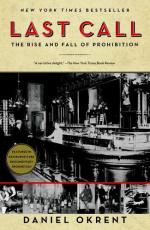|
This section contains 992 words (approx. 4 pages at 300 words per page) |

|
By 1932 much of the nation was eager to see Prohibition ended. Repeal rallies and marches filled the streets of major cities. Democratic and Republican political nominees scrambled to endorse a pro-"wet" platform. Even the most diehard prohibitionist could see that repeal was a serious threat, if not an inevitability. Industrialist John D. Rockefeller Jr. was an admitted teetotaler and one of the most dedicated prohibitionists. He had donated more than $350,000 to the AntiSaloon League over the years. He, like many of his colleagues, believed Prohibition would increase worker productivity. But Prohibition had actually created more problems among workers as well as fostering in them a disrespect for the law. The onset of the Great Depression added greatly to these problems. Rockefeller could no longer ignore the reality of Prohibition's failure and made a painful decision. He wrote the...
|
This section contains 992 words (approx. 4 pages at 300 words per page) |

|




